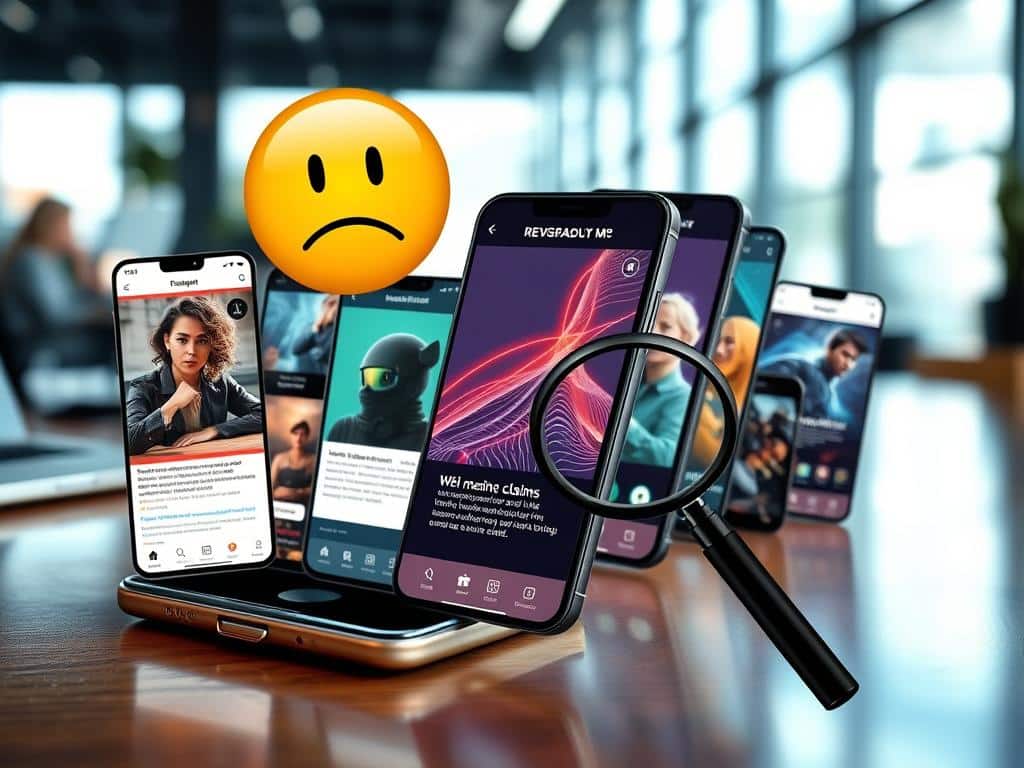Consumers put their trust in companies to represent their products accurately. However, the growing prevalence of misleading apps has led to an increase in consumer lawsuits. These misleading advertisements can result in financial loss, injury, or even death. Various state and federal statutes provide legal rights and protections to address such false advertising claims, allowing you to take legal action against apps promoting app store deception.
If you purchase a product or service based on false or misleading advertising practices, it’s possible to file a consumer lawsuit. In such cases, the usual deadline to serve the advertiser is between 90 to 120 days after filing the case. Additionally, the advertiser must typically respond within 21 or 30 days. Settlements are often encouraged before trial, sometimes with the assistance of the Better Business Bureau. For more complex situations, you might need to utilize discovery tools like interrogatories and depositions.
Class action lawsuits are a common legal forum for these claims. These lawsuits can potentially involve thousands or millions of consumers and result in significant financial compensation from the responsible company. Firms like Wilshire Law Firm specialize in such legal actions, helping you navigate the complexities of the legal framework surrounding false advertising and ensuring that justice is served.
Understanding False Advertising and Its Legal Implications
False advertising is the practice where businesses make misleading claims about their products or services. This not only deceives customers but can also result in significant legal consequences for the companies involved. Below, we’ll delve into the specifics of false advertising, common practices, and the regulatory framework safeguarding consumer protection.
Definition of False Advertising
False advertising involves promotions that mislead consumers. It includes deceptive marketing practices such as exaggerated branding, manipulation of terms, and misleading product warranties. These false marketing claims can be particularly damaging to consumers, who often rely on such advertisements to make purchasing decisions.

Legally, false advertising doesn’t require intentional deception. Even unintentional misleading statements can qualify under advertising regulations. For example, Juul E-Cigarettes were marketed as a safe alternative to traditional cigarettes despite containing more nicotine.
Common Practices of False Advertising
There are various methods companies use to falsely market their products:
- Misleading Health Claims: Some daily supplements claim health benefits but are contaminated with harmful substances like lead, cadmium, and BPA.
- Exaggerated Product Efficacy: Products like Olay skincare promise anti-aging benefits that may not be scientifically backed.
- False Safety Statements: Household appliances such as instant pots and pressure cookers have been reported to catch fire or explode.
- Fabricated Environmental Benefits: Companies like Smithfield Foods falsely advertise their products as environmentally friendly.
Regulatory Framework
In the United States, the Federal Trade Commission (FTC) is the primary body enforcing advertising regulations to protect consumers. The FTC accepts consumer reports on deceptive marketing and has introduced new rules regarding “Made in the USA” claims to prevent companies from falsely marketing their products as domestically made.
State-level laws also offer avenues for consumer protection. For instance, under New York’s General Business Law, consumers can collect up to $50 for each instance of false advertising. This legal framework helps safeguard consumer interests and prevent businesses from engaging in deceptive marketing practices.
| Company | Product/Service | False Claim |
|---|---|---|
| Juul | E-Cigarettes | Marketed as safer than traditional cigarettes |
| Volkswagen | Clean Diesel Vehicles | False emissions tests results |
| Smithfield Foods | Pork Products | Environmentally friendly |
| Household Appliances | Instant Pots, Pressure Cookers | Catching fire and exploding |
These examples highlight the importance of strict advertising regulations to ensure consumer protection. False advertising not only misguides consumers but can also pose serious health and safety risks.
Examples of Lawsuits Against Apps for False Advertising
False advertising cases in the app industry have surged in recent years. Various high-profile technology legal cases have set remarkable false advertising precedents in this dynamic and evolving landscape. Below are some of the most notable deceptive app lawsuits that captured public and legal attention.
High-Profile Cases
High-profile app store lawsuits have highlighted the issue of false advertising within the tech industry. One significant example is the case against Uber in 2015, where a pedestrian sued the company due to an accident caused by distracted driving with the Uber app. Similarly, in 2016, Snapchat faced a lawsuit after an 18-year-old caused a crash while using a filter that measured speed.
Another landmark case involved the augmented-reality game Pokémon Go. In 2016, property owners in New Jersey and Michigan filed lawsuits against developer Niantic, alleging that the app encouraged players to trespass on their property. These incidents illustrate how deceptive app lawsuits can have varied and complex implications for both users and developers.
Legal Precedents
Legal precedents set by these cases have shaped the landscape of technology legal cases. For instance, the lawsuit against Snapchat was ultimately dismissed under the Communications Decency Act, highlighting the challenges of holding developers accountable for user behavior. Meanwhile, the outcomes of app store lawsuits against Uber and Pokémon Go have underlined the importance of comprehensive legal frameworks to address deceptive practices effectively.
In cases involving mass-market apps, class action lawsuits are common. These allow large groups of affected consumers to join forces, strengthening their claims of false advertising. Courts can issue legal injunctions to halt deceptive campaigns and may order companies to compensate consumers financially. Especially in complex false advertising cases involving significant financial losses or personal injuries, legal guidance is essential to navigate the process and secure compensation.
| Case | Year | Issue | Outcome |
|---|---|---|---|
| Uber | 2015 | Distracted driving accident | Pending resolution |
| Snapchat | 2016 | Filter-induced crash | Dismissed |
| Pokémon Go | 2016 | Trespassing encouragement | Pending resolution |
Steps to Take if You Believe an App Has Engaged in False Advertising
When you encounter misleading advertisements from an app, taking the right steps can make a significant difference. From gathering evidence to consulting legal professionals, being well-informed is key to approaching potential legal actions. This section guides you through crucial steps to address false advertising effectively.
Gathering Evidence
The first step involves collecting robust false advertisement evidence. Screen captures of the advertisements, copies of promotional materials, and records of any misleading claims will be essential. Documenting your interactions with the app, including any purchase confirmations, can bolster your case. Having this evidence not only strengthens your claim but also provides a clear foundation when consulting for consumer legal advice.

Consulting Legal Aid
Once you have gathered your evidence, it’s crucial to seek consumer legal advice. Experienced attorneys can guide you through the complexities of filing a lawsuit against the responsible parties. Understanding who precisely to sue—often the app developer or parent company—remains a key determining factor. Legal consultations can clarify where to file your suit, especially when balancing federal versus state law considerations.
Filing a Complaint with Authorities
Before proceeding with filing a lawsuit, you might consider filing a complaint with agencies like the Federal Trade Commission (FTC) or local consumer protection agencies. This initial step can sometimes lead to quicker resolutions. The FTC, responsible for enforcing regulations concerning unfair trade practices, can issue cease-and-desist orders, impose fines, and mandate corrective advertisements. Numerous states also offer their own protective measures, potentially leading to criminal penalties in severe cases.
For more comprehensive details on the legal ramifications of false advertising, explore this informative article for in-depth consumer legal advice and related resources.
Can You Sue An App For False Advertising
Yes, you can sue an app developer if you believe their advertising is misleading. In cases where a mobile app makes false claims that result in consumer harm, such as financial loss, a legal route is available to seek redress. To initiate a consumer app lawsuit, the misleading nature of the ad and the resulting damages must be proven.
Understanding the legal backdrop is vital. Certain states, including California, have stringent laws to protect consumers. For example, the state attorney general can impose civil penalties up to $2,500 per false ad. Similarly, the Federal Trade Commission (FTC) can levy fines up to $40,000 for cases of app false marketing.
Moreover, cases like the lawsuit against DoNotPay, where an app falsely claimed to generate legal documents with AI, demonstrate the serious repercussions for app false marketing. The company had to pay a settlement of $193,000. In another instance, Ascend Ecom allegedly defrauded consumers by promising AI-propelled online storefronts, resulting in a significant consumer app lawsuit.
Consumers encountering false advertising should gather evidence meticulously and consider legal aid. Statutory penalties vary across states; for instance, New York allows consumers to collect up to $50 per false ad. Regulatory bodies like the FTC can enforce actions, stopping deceptive practices and imposing penalties on offenders.
| State/Agency | Penalty Per False Ad |
|---|---|
| California Attorney General | $2,500 |
| Federal Trade Commission | $40,000 |
| New York (GBL) | $50 |
The legal framework involves both state and federal laws. The Uniform Deceptive Trade Practices Act, adopted by many states, outlaws deceptive advertising. In California, the False Advertising Law and the Unfair Competition Law collectively restrict damages to the purchase price of the product or service.
Ultimately, pursuing a lawsuit against an app developer requires proving that the app’s false marketing caused tangible harm. With the rising vigilance of regulatory bodies and availability of legal recourse, consumers have avenues to address grievances stemming from mobile app false claims.
Is It Possible to Sue an App for False Advertising on Facebook Marketplace?
When an app misrepresents its features or services on platforms like Facebook Marketplace, users might explore whether they can sue for false advertising facebook claims. Legal action could hold the responsible party accountable, but success often depends on providing clear evidence and understanding jurisdictional laws governing deceptive marketing practices. Seek professional advice.
Conclusion
In summary, combating false advertising within the rapidly evolving digital marketplace is crucial to safeguarding consumer rights. Understanding the complexities of advertising accountability and legal recourse is integral for holding app developers to their marketing claims. Should you encounter misleading promotions, the first step is systematically gathering evidence and consulting legal professionals. This ensures that your complaints are well-supported, which is vital when prosecuting false ads.
The legal landscape offers numerous protections and remedies. Under federal law, misleading advertisements are rigorously scrutinized, with courts requiring concrete proof that the deceptions were material and likely to influence purchasing decisions. Violation of false advertising statutes, such as those under California’s Business and Professions Code, can lead to severe penalties, including fines, imprisonment, and compensatory damages. Sellers are also bound by duties of disclosure, and breaches may result in liability for constructive fraud.
As technology continues to advance, the legal system is adapting to ensure that consumer rights are preserved. Familiarizing yourself with the available legal recourse, and enlisting the right legal advice can empower you to pursue justice effectively. Whether through injunctive relief, restitution, or monetary compensation, holding advertisers accountable for false claims not only protects individual consumers but also upholds the integrity of the digital marketplace.








